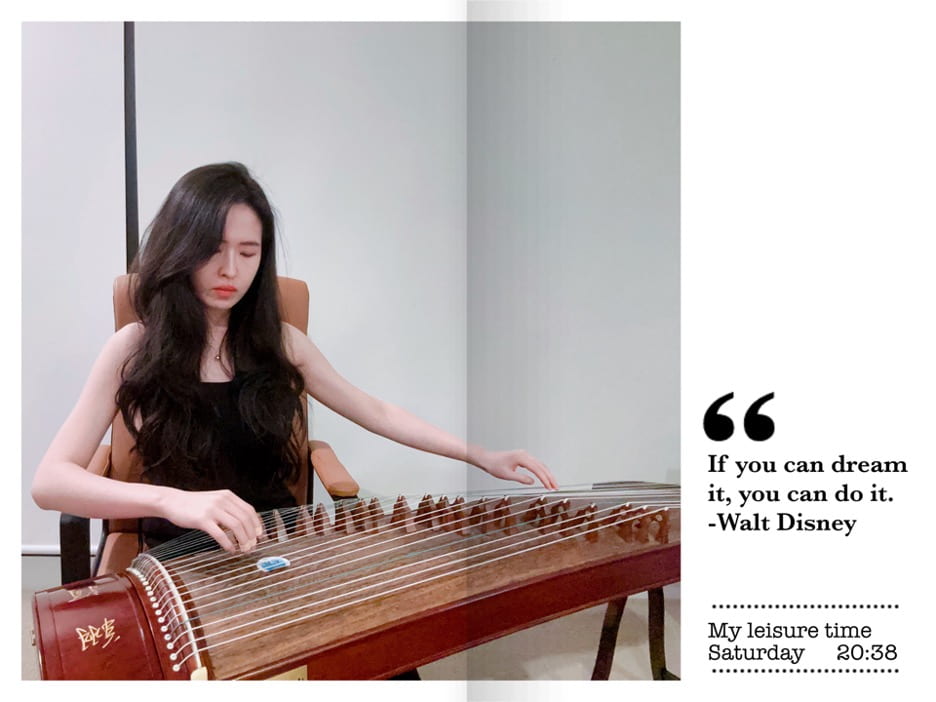
Graduate Researcher Series: an Interview with Chenyang Zhang
Hangyu Zhang
Chenyang Zhang is a second-year PhD student in the School of Languages and Linguistics at the University of Melbourne. Her research interests focus on language policy, language testing impact, and agency. Her PhD project investigates the policy intentions and realities of assessment and teaching of non-common foreign languages in China’s secondary education, under the supervision of Associate Professor Jason Fan and Dr Kellie Frost.
Earlier this year, Chenyang started her fieldwork in China. To learn more about her research and fieldwork experience, Hangyu interviewed Chenyang.
* * *
Hello, Chenyang! Thank you so much for talking with me about your research and fieldwork. First of all, can you briefly introduce your research project?
Thanks for this opportunity, Hangyu! My research focus is on the intersection of language testing, language policy and agency. Firstly, I would like to talk about my research background briefly. As you may know, the promulgation of the Belt & Road initiative in 2013, which represents China’s ambition to seek new avenues and promote social-economic collaboration with other regions, mainly in Asia, Africa, and Europe, to bolster China’s economy, has created the need for a larger number of people proficient in foreign languages other than English. Thus, increasing attention has been devoted in China to supporting non-common foreign languages or NCFLs, including foreign languages other than English, like Japanese. Under this policy support, senior secondary students can access NCFL schooling and select an NCFL subject, instead of English, in the National Entrance Examination, which is called Gaokao in Chinese.
Given the limited scholarly attention to this significant policy shift in China, my study aims to explore the intentions of national and local government policies in regard to NCFL education and testing. Moreover, I consider the agency of local stakeholders by exploring their understanding and actions, including school managers and program coordinators when they respond to top-down policies and enact school-level policies in China’s senior secondary schools. Lastly, I examine how teachers and students respond to school-level NCFL assessment policies and prepare for NCFL subjects in the Gaokao.
That’s a good topic! What’s the significance of your research?
Positioned at the intersection of language testing, language policy, and agency, my study, by investigating how different stakeholders perceive and act in response to NCFL assessment policies, will develop a model to rationalise the significant role of stakeholder agency in generating test impact and its consequences. In addition, this study will provide theoretical insights into the roles language testing plays in policy domains, thereby enriching the current understanding and theorisation of test impact in policy contexts. Furthermore, this study will assist policymakers in considering and positioning the role of NCFL education and testing considering students’ attitudes towards multilingualism and multiculturalism in other nations where English is dominant in foreign language education.
That’s really meaningful! I know you just returned from fieldwork in China last semester. How did you collect data there?
The data in this project was gathered from two sources, one being interviews and the other document collection. Interviews were conducted with three different groups.
Firstly, I interviewed local senior secondary school managers and program coordinators, aiming to explore how they interpret national and local policies regarding NCFL education and assessment, as well as how they formulate and enact school-level policies in this context. Participants took part in a one-on-one interview for about one hour in March/April 2023. Secondly, I conducted interviews with NCFL teachers to explore how they perceive school-level policies regarding NCFL education and assessment and the impact on their teaching practices. The one-on-one interviews were conducted twice, for about one hour each time, in April and May 2023, in order to explore how teachers’ perceptions and teaching practices change as the Gaokao approaches. Thirdly, interviews with students aim to explore their beliefs, attitudes, and behaviours in response to NCFL subjects in Gaokao. Similarly, interviews were conducted twice in March and May, and the last set of interviews will be conducted in August 2023, with the objective of seeing the changes in students’ beliefs, attitudes, and behaviours in the different stages of preparing for the Gaokao and after taking the Gaokao.
On the other hand, the document collection was mainly based on national and local policies that are available to the public, curriculum standards and teaching materials that were provided by teachers, and students’ journals.
It sounds very comprehensive! Since you were collecting data outside Australia, did you get any support for your fieldwork?
Yes, I did. Actually, I would like to take this opportunity to say thank you to my supervisors and for the Faculty of Arts PhD Fieldwork Grant Scheme. During the data collection process, whenever I faced an issue, my supervisors always took the time to discuss it with me and help me solve it as soon as possible. Then, we made a plan together, which made me feel supported and encouraged, even though I was in Shanghai alone. Also, thanks to my supervisor’s professional network in language teaching and testing in China, we collaborated closely with a professor in the field of language education who has connections with senior secondary education administrators in different schools in Shanghai, China. I am appreciative of this professor’s great support. Thanks to this professor’s social network, we were able to send recruitment emails and plain language statements to school administrators and program coordinators in two senior secondary schools in Shanghai. They forwarded these emails and plain language statements to NCFL teachers working in their departments, who then circulated them among their students. In this way, I was able to recruit participants.
Also, I would like to express my sincere gratitude for the funding support from the Faculty of Arts PhD Fieldwork Grant Scheme. With this funding, I received financial support to travel to Shanghai, find participants and gather data. I wouldn’t have been able to obtain my current data without this funding support, which has contributed to the successful execution of my research project. Also, it means a lot to me. It was an honour, an encouragement, and emotional and financial insurance to conduct fieldwork.
It’s great to hear that you have received a lot of support from your supervisors and our Faculty! On the other hand, did you encounter any challenges during fieldwork?
The most difficult thing was to recruit participants, although I did receive a lot of help with it. As you know, students in Grade 3 in senior secondary school are busy preparing for Gaokao, which is the most significant high-stakes test in China, determining who can access higher education and what kind of higher education. Thus, teachers and students usually feel a lot of pressure during this period. Therefore, I had to ensure that their participation was voluntary and that they felt comfortable during the interview process. In this regard, I would like to take this opportunity again to thank my participants for their time and support in the data collection process.
Thanks for sharing this wonderful experience. Finally, as a PhD candidate, would you please offer some advice to first-year PhD students who are preparing for their confirmation?
I would like to give three suggestions. Firstly, it is important to communicate with your supervisors about your concerns and questions related to your research project and your emotional situation. I feel that the reason why my PhD project has gone smoothly so far is that I am inclined to talk to my supervisors about what I did in the previous two weeks and what I am going to do in the following two weeks. Additionally, in every meeting once every two weeks, my supervisors usually ask me whether I have some concerns or doubts. In this way, I always feel that I am on the right track to conduct my research project. Secondly, reading and summarising are important. When reading, I like to summarise what I think is important as soon as possible, since the summarising process can facilitate my interpretation of the reading material and is helpful in developing my critical thinking.

Chenyang Zhang playing the Guzheng. Photo by Chenyang
Lastly, it is also important to enjoy your leisure time. After a busy day, when I finish my work, I like to do yoga or play the Guzheng, a traditional Chinese musical instrument (as attached in the above photo), to recharge, relax my mind, and prepare for the challenging and interesting work the following day.
Those are all useful and valuable tips! Thanks for talking with me today. It was great learning from your research and experience, Chenyang.
Thank you, Hangyu.